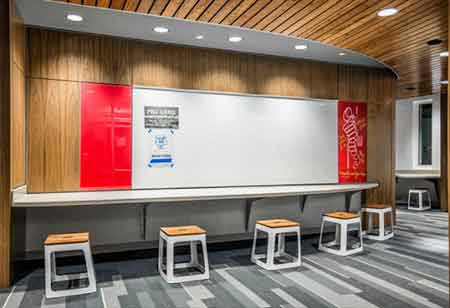THANK YOU FOR SUBSCRIBING
Be first to read the latest tech news, Industry Leader's Insights, and CIO interviews of medium and large enterprises exclusively from Education Technology Insights
Building Future-Proof Learning Experiences
Investing in a tailored LMS will have more chances to attract online students and offer them outstanding learning experiences

By
Education Technology Insights | Wednesday, June 09, 2021
Stay ahead of the industry with exclusive feature stories on the top companies, expert insights and the latest news delivered straight to your inbox. Subscribe today.
Investing in a tailored LMS will have more chances to attract online students and offer them outstanding learning experiences.
FREMONT, CA: Learning Management Systems are a key part of the eLearning design and development, specifically if firms have a vast audience and a great deal of subject matter to offer. With a fully automated LMS, educational institutions can seamlessly create training courses for the staff, add exams to the course curriculum, set up a pass rate for the exams and issue certificates if the person passes the final exam, and a lot more. Here are some innovations to make the LMS stand out.
- Online Proctoring
Unlike traditional methods of conducting online evaluations, remote proctoring provides unparalleled ease of use and transparency. Based on computer vision tech, it fulfills several purposes — from verifying student find during the registration to overseeing hundreds of simultaneous remote exams anywhere globally. This advanced method enables accurate tracking of learner activities through their webcam, and then the footage is analyzed by AI to identify suspicious activities.
- Media Asset Management
Embedded in the LMS will save firms time and money by automating the whole content management lifecycle from video ingestion and transcoding to processing and playout. Advanced MAM functionality will spare the headache of monitoring the quality of the video streams, taking charge of identifying anomalies like glitches, black screens, artificial text, and more. With AI, this mechanism will easily adjust content to any screen resolution and network condition.
- Artificial Intelligence
Deeply analyze user behavior throughout the course, such as material choice, performance, feedback, and interactions with tutors. With these insights, educational institutions can offer tailor-made content recommendations and offer an extra layer of comfort and flexibility in terms of subscription choices. Besides, AI-based personalization will help firms increase satisfaction among the enterprise clients who require learning courses to be streamlined for different organization branches.
- AR and VR
Enriched with such innovative features, educational programs will help users train high-precision skills and accelerate learner engagement: AR instructions, 360-degree content, VR simulation, interactive 3D boards. Real-life scenarios will assist learners in developing skills and remembering information seamlessly with no risk involved.







